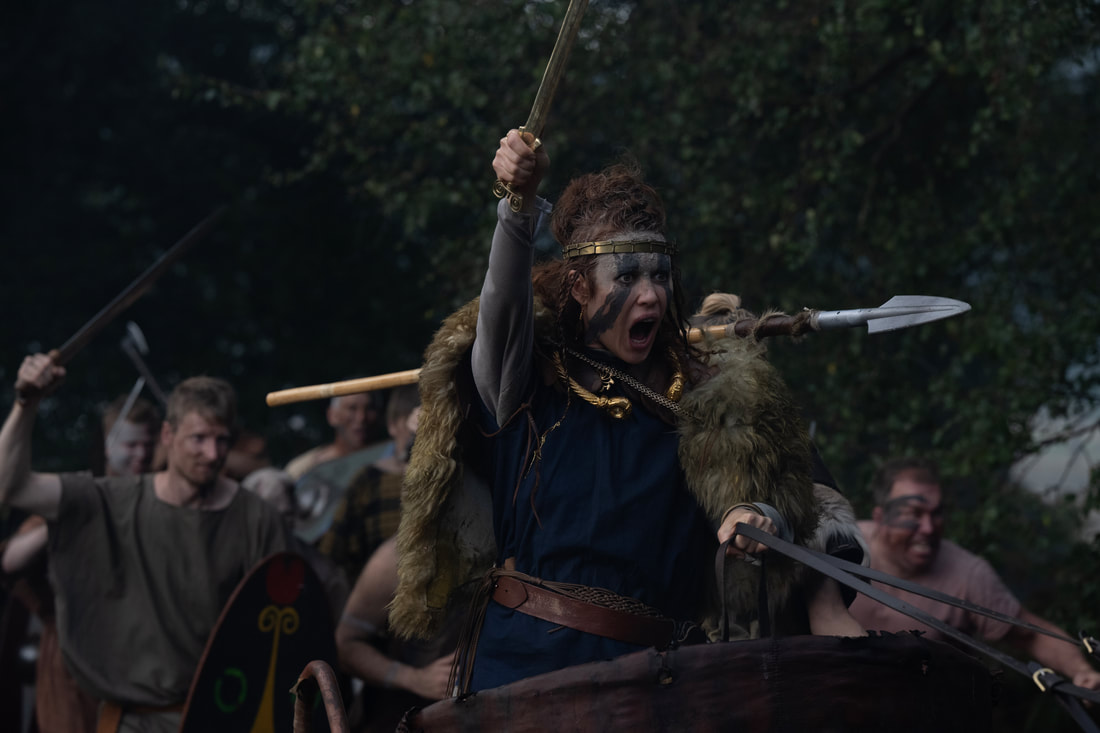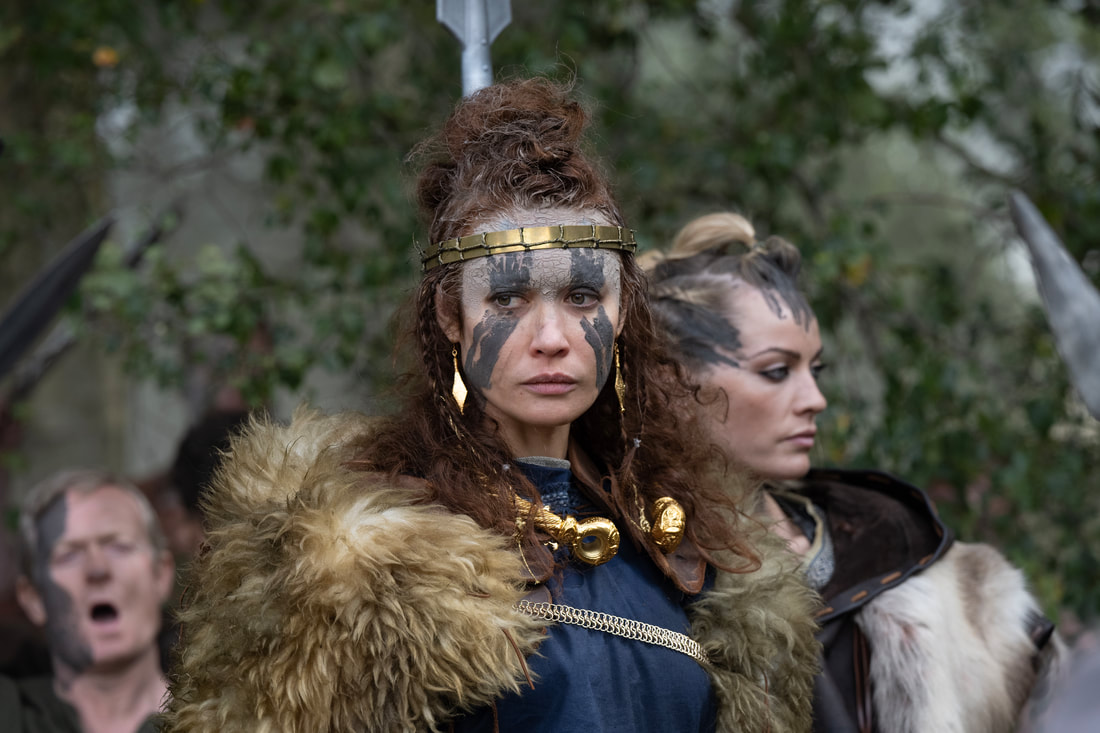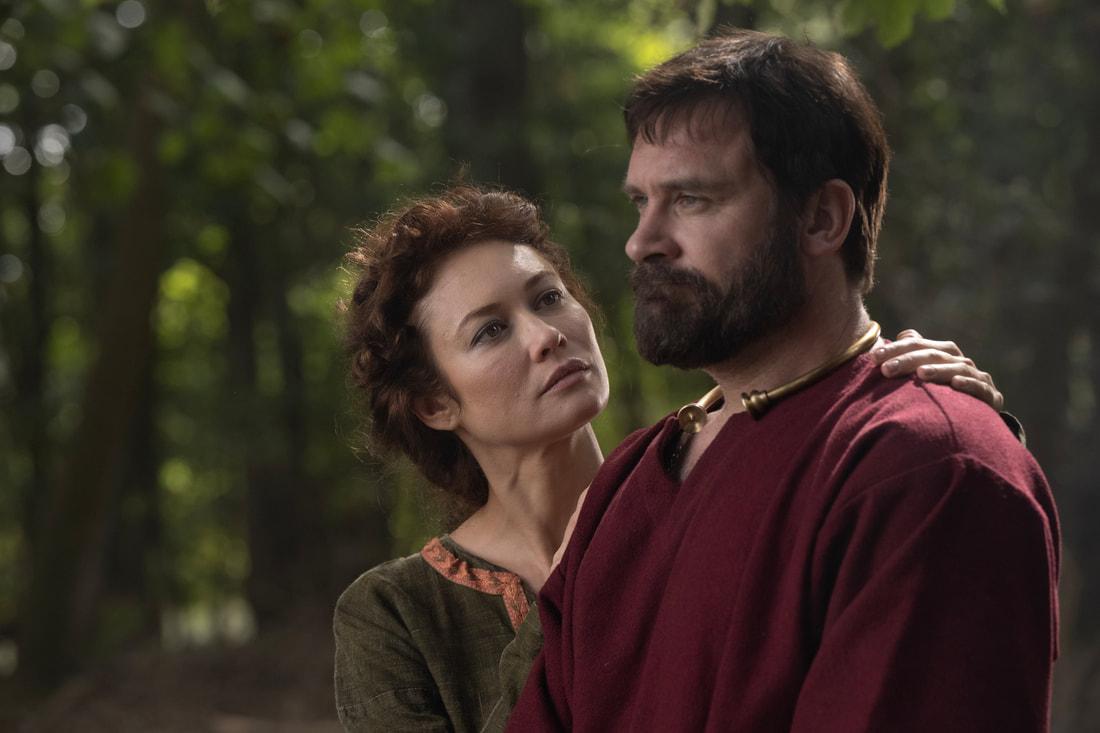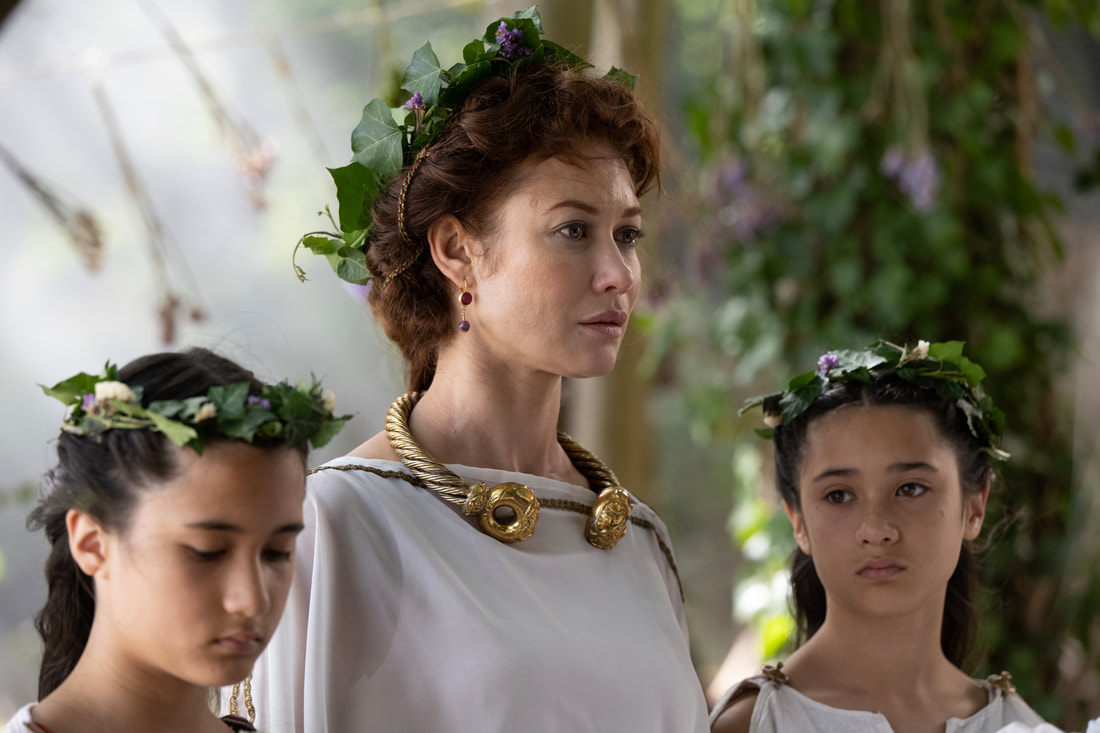Legendary Action Filmmaker Jesse V. Johnson Talks His Historical Epic BOUDICA: QUEEN OF WAR10/27/2023 Interview by Daniel Lima In another era of filmmaking, Jesse V. Johnson would be a studio stalwart — an auteur at the helm of a deluge of two-fisted tales about individuals who lead lives of violence. Even without the support of major studios, he has maintained a decades-long career in the action and crime genres, with films like Avengement and the Debt Collector series cementing him as one of the most exciting directors working today. His latest effort, Boudica: Queen of War, relays the story of a Celtic warrior queen who fought against the Roman occupation of Britain millennia ago. We at disappointment media had the privilege of talking to Johnson about the film, delving into his personal motivation to bring the legend to screen, the importance of grounding a figure like Boudica in reality, and developing the visual aesthetic. On Finding Humanity in Legenddisappointment media: When you first wanted to write this story, were you attracted to exploring and relaying the legend of Boudica? Or were you more interested in delving into the psychology of the woman who experienced what she did? Jesse V. Johnson: It was the woman that interested me. My mother took me to the statue [of Boudica in Westminster] as a little boy, and she would have been a divorced single mother, a very fiery redhead. This was a legend she was obsessed with from her school days. It represented a powerful woman who got what she wanted and protected her children with everything she could, which I think is how my mother saw herself at that particular point in time. As a child, you feed off your parents, and this feeling of importance to her laid the foundation in me quite young. As I grew older, I researched her life and her story, and it just fascinated me. I don't know if it was because of my mother, or because of my own imagination, or what I saw in that story. But what I find interesting is that a normal person, the everyday person, the person who we are familiar with, we may live next door to do, having to find something within their soul to deal with the problem that's presented to them. In my mind, she’s a well kept housewife and a wonderful mother worrying about the sort of things that a housewife and a mother worries about, and there wouldn't have been much reason for her to worry about things beyond that. They were in a very comfortable situation, collaborating for quite some time with the Roman occupation forces. They would have had everything they wanted, food and land and servants, it would have been quite a good lifestyle. Then this act happens, this terrible, terrible act. We're not sure what really caused it — I've invented my version of events — but we then have the second life for this character, where she becomes something else altogether. Completely motivated, but reaches deep within her soul and forces this other person, whether by people's expectations to where she is or particular timing of what's going on, to become this warrior, a million miles away from where she started. I find that stimulating and powerful, and whether it's a man or a woman, this is dramatic for me, and it was something that obsessed me, and I wanted to make the movie in quite some time. It just presented dramatic problems that took me a long time to figure out. On Historical Fidelitydisappointment: You mentioned having to invent what was there, because so much of her story was lost to history. When you were filling in those details, for you what was most important to emphasize about her character? Johnson: I wanted her to be believable and organic, to feel like someone you knew: layered, textured, fickle. She has a fascination with cooking, with trying to better herself in the arts. She wants to be fashionable, she wants to make sure her children are well kept, and educated, ready to take over when she and her husband become older. It's remarkably similar to how we feel about our children now. I didn’t want these to be cut out of a history book, like a living history. I wanted them to be as palatable and acceptable as if we were watching people from the 21st century, because to embed her in that familiarity in the first act would make the second act more profound. My biggest concern was making it feel like a world that they lived in — that they walked from A to B for a reason, that they were eating at that particular time of day for reason, that he loved her for a reason, that they were king and queen for a reason. If I could make that feel believable, the second half was going to be feel believable too. The Iceni kept no written records. They had drawings and swirls and beautiful carvings, but there's no writing. The only history we have from their time is from [the Roman historian] Tacitus, and he lived quite a few decades after this event happened. But the more you scratched the surface, the more different historical records you read of the time, the more you see elements that would recur. You try to find your way through all the flourish, find the raw bones, and that's what we've built on. The museum in Colchester was wonderful. Colchester was the first city that she burned when she went on her initial rampage. It was a temple to Claudius that she burned to the ground, full of Romans that were living there at the time. There's a layer of black in the dirt when you cut down, where the sand and cement was turned to glass from the superheating inferno. It's really dramatic stuff, she was ruthless, utterly ruthless. And compared to the first apparition that we meet of her, I think that's a fascinating sort of journey for a character to go on, and this transfixed me for decades. On Handling the Story’s Darknessdisappointment: You noted the first half came easier to you when you first sat down to write the script years ago, and that the second half was kind of a puzzle before Olga came onto the project. What was exactly the problem that you couldn't square when you first sat down to write the script? And how did Olga solve that? Johnson: Well, I wrote the first half of the script. I had no problem with that, I understood her. What I couldn't work out with this act of indescribable evil, which happens midway through, and both of the Roman accounts describe this in detail. There's no way you can film it, people don't want to go to the movies for that. Every single version of Boudica — whether it's written, whether it's filmed, whether it was a stage play — has ruined itself by not handling that correctly. If I showed anything close to that, it would be insulting. If I withdrew and said, “No, this didn't happen,” it would also be insulting. I felt a great responsibility to treat her with respect, her story with respect, and never had quite that feeling before. It became a heavy burden on my shoulders, and I hope it shows in the movie. Meeting Olga, I realized I had this friend now who I love working with. I adore the way she works, I love the way she looks on the camera. The way she approaches her work inspires me. I could make every film with Olga for the rest of my career. If she agreed to it, I’d have no problem making Olga Kurylenko movies, and then retiring Joseph von Sternberg style after Marlene Dietrich. I'd met her, and I knew I could get the film made. Then I dragged out the script. I had got thirty-five pages, then stopped. I attempted fifteen or twenty times to get through that act, working out how to do it. It was through reinvigorated interest in getting it finished that I just happened across a description of these Vietnamese mothers during the Vietnam War, who had seen so much evil, been privy to circumstances that were so incomprehensible to us, that they had gone blind through a psychosomatic condition. The doctors could find nothing wrong, but they were blind. It happened on quite a large scale, and it was simply a human reaction to seem too much. I realized that therein lies the answer to my issue. For me, it was the most befitting way to show that in film. You let the audience realize at the same speed that your character realizes that they're lost, and they've gone, but you don't show it. You realize that it's such horror that she's seen that she's just wiped it out and replaced it with the imaginary. On the Film’s Visual Aestheticdisappointment: You're operating in a milieu that you haven't before, historical drama, far away from the inspirations you've cited previously for previous films. In building the visual language of Britannia, what were your inspirations? How did you choose to capture it? Johnson: We chose to focus on Pre-Raphaelite paintings, neoclassical paintings of the English romanticism era. They used the light extraordinarily well. Everything was quite wide, what we call a “cowboy shot,” where you see below the feet and above the head, and use backlighting as much as possible. We looked at the Caravaggio's as well, a lot of chiaroscuro-style lighting is taken from paintings. We just put books and books and stuff together from that era, and looked to the classicists from that time. We didn't want to make it a raw, handheld movie, as far away as possible. Try to be invisible with the camera, make these tableaux as attractive as possible. Color-wise, it's very lush, everything's alive at the beginning of the film. Flowers, everything is a rich green, you just grab a handful and eat it like salad. After the event, we make it brown and darker, a little less lived-in. Towards the very end of the film, where everything seems to be brown, black or gray, a more dead feeling to nature than the lush of spring — which is sort of how it happened anyways, because it was wintertime when we were finishing up. We sucked out a lot of the green and replaced it with autumnal colors, small things just to subdue it a little bit. We all associate lush green with life and springtime, and vitality and vibrancy. As you dispense with that, it feels like a transition. Boudica: Queen of War is now in theaters and VOD.
0 Comments
|
Archives
March 2024
Authors
All
|
|
|
disappointment media
Dedicated to unique and diverse perspectives on cinema! |




